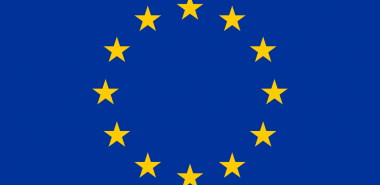Coordinated Maritime Presences
The EU conducts naval operations under its Common Security and Defence Policy. In addition, the EU implements Coordinated Maritime Presences (CMP). This tool allows the EU to act together by enhancing coordination of the existing Member States naval and air assets present in specific areas that are of interest to the EU, around the world, to increase the EU’s capacity to act as a reliable partner and maritime security provider. It is very important to understand that this is not a CSDP mission or operation; coordination will take place on a voluntary basis, with assets remaining under the national chains of command.
In order to implement this concept, the first step is to define a specific Maritime Area of Interest. A Maritime Area of Interest coordination cell (MAICC) within EEAS/EU Military Staff provides expertise for relevant military related aspects and serves as the point of convergence where Member States´ contributions are coordinated and put together, in close contact with their National Command and Control Centres.
The CMP tool is a light instrument that allows Member States present in these Maritime Areas of Interest to share awareness, analysis and information. At the same time, it ensures a permanent European maritime presence and outreach around the world, promoting international cooperation and partnerships at sea and partnerships, in line with the international law, in the areas concerned. A Senior Coordinator ensures coherence of the overall action of the EU in each Maritime Area of Interest, and conducts relations with regional partners on maritime security.
In Focus
Navigate the topic
CMP in the Gulf of Guinea
In response to the worsening maritime security situation in the Gulf of Guinea (GoG), on 25 Jan 2021 the EU launched the CMP concept in this region as a pilot case. The implementation of the CMP concept in GoG is complementary to other EU actions in line with the EU’s Gulf of Guinea Strategy, thus contributing to the EU Integrated Approach. It aims to enhance coordination of the EU action in the Gulf of Guinea, and more particularly the maritime security situational awareness and cooperation at sea, benefitting from the EU MS naval presences in the area.
CMP in the GoG aims to support efforts by the coastal States and the organizations of the interregional Yaoundé architecture for Maritime Security to address security challenges, such as armed piracy and kidnapping for ransom, which undermine maritime security and good governance of the oceans. UN Security Council Resolution 2634 (2022) of 31 May 2022 on piracy and armed robbery in the Gulf of Guinea recognized the contribution of the CMP to maritime security in support of ongoing efforts by countries in the region and regional organizations.
EU Member States have provided assets through voluntary contributions, ensuring a continuous presence in the region and cooperation with coastal States’ navies, including maritime security exercises, training and capacity building. They have ensured sustained participation in the major annual maritime security exercises in the region: the United States-led OBANGAME EXPRESS and the French-led African NEMO and Grand African NEMO (GANO). In addition, the EU has organised maritime security events during port calls of ships participating in CMP. It has promoted cooperation with like-minded partners, such as US, Brazil and India, and has conducted joint exercises both at sea and on land.
CMP in the Northwestern Indian Ocean
Through its Indo-Pacific Strategy, the EU aims to reinforce its strategic focus and actions in the region with a view to contributing to its stability, security and prosperity, based on the promotion of democracy, rule of law, human rights and international law. Thus, taking into account relevant lessons learned from the CMP Pilot case in the Gulf of Guinea, in February 2022 the EU launched the implementation of the CMP concept in the North Western Indian Ocean (NWIO).
The strategic objective of the CMP NWIO is to promote international law, in particular ensuring freedom of navigation and supporting merchant ships’ passages through the Red Sea, the Strait of Hormuz, outside territorial waters and into the Indian Ocean through a better coordination of deployed maritime assets in the MAI, including training and capacity building of Coastal States (CS) navies. EUNAVFOR Operation Atalanta operates within the CMP NWIO MAI.
The expected outcomes of the CMP implementation in the NWIO is among others, to support progressive establishment of an open and rules-based regional maritime security architecture. The EU supports the Djibouti Code of Conduct-Jeddah Agreement signatory countries in their efforts to address maritime security challenges in the region. CMP in the NWIO also promotes cooperation with partners, including by conducting joint maritime exercises and port calls, and facilitates the exchange of information. In addition to EUNAVFOR ATALANTA activities, examples of CMP activities include a port call on Mumbai in August 2023 and patrolling in the Mozambique Channel in October 2023.






